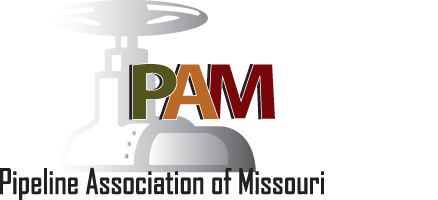SIGHT: Liquid pools, continuous bubbling in wet or flooded areas, an oily sheet on water surfaces, vaporous fogs and/or blowing dirt around a pipeline area. Dead or discolored plants in an otherwise healthy area of vegetation or frozen ground in warm weather are all signs of a pipeline leak. Natural gas is colorless, tasteless, and odorless, but vapor and "ground frosting" may be visible at high pressures. A natural gas leak may also be indicated by dust blowing from a hole in the ground or flames, if the leak is ignited. | |
SOUND: Volume can range from a quiet hissing to a loud roar, depending on the size of the leak and pipeline system. | |
| SMELL: An unusual smell, petroleum odor, or gaseous odor will sometimes accompany pipeline leaks. Natural gas and HVLs are colorless, tasteless, and odorless, unless commercial odorants or Mercaptan is added. Gas transmission/gas gathering pipelines are odorless, but may have a hydrocarbon smell. |
Responding To A Pipeline Leak
- Turn off any equipment and eliminate any ignition sources without risking injury.
Leave the area by foot immediately. Try to direct any other bystanders to leave the area. Attempt to stay upwind.
From a safe location, notify the pipeline company (if known) immediately and call 911 or your local emergency response number. The company will need your name, your phone number, a brief description of the incident, and the location so the proper response can be initiated.
What not to do in the event of a leak:
- DO NOT cause any open flame or other potential source of ignition, e.g. an electrical switch, vehicle ignition, or a lit match. Do not start motor vehicles or electrical equipment. Do not ring doorbells to notify others of the leak; knock with your hand.
- DO NOT come into direct contact with any escaping liquids or gas.
- DO NOT drive into a leak or vapor cloud while leaving the area.
- DO NOT attempt to operate any pipeline valves yourself. You may inadvertently route more product to the leak or cause a secondary incident.
- DO NOT attempt to extinguish a petroleum product or natural gas fire. Wait for local firemen and other professionals trained to deal with such emergencies.
